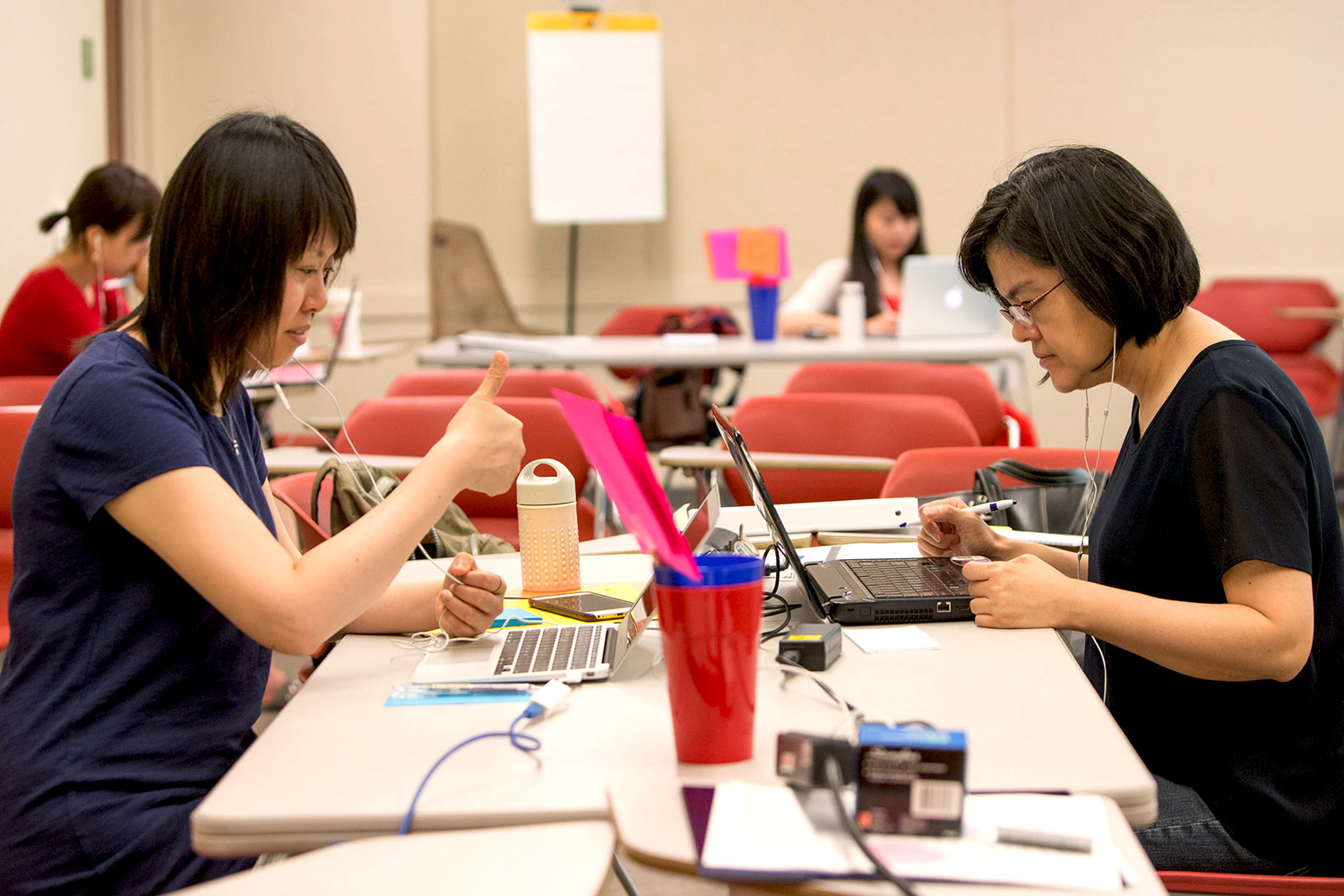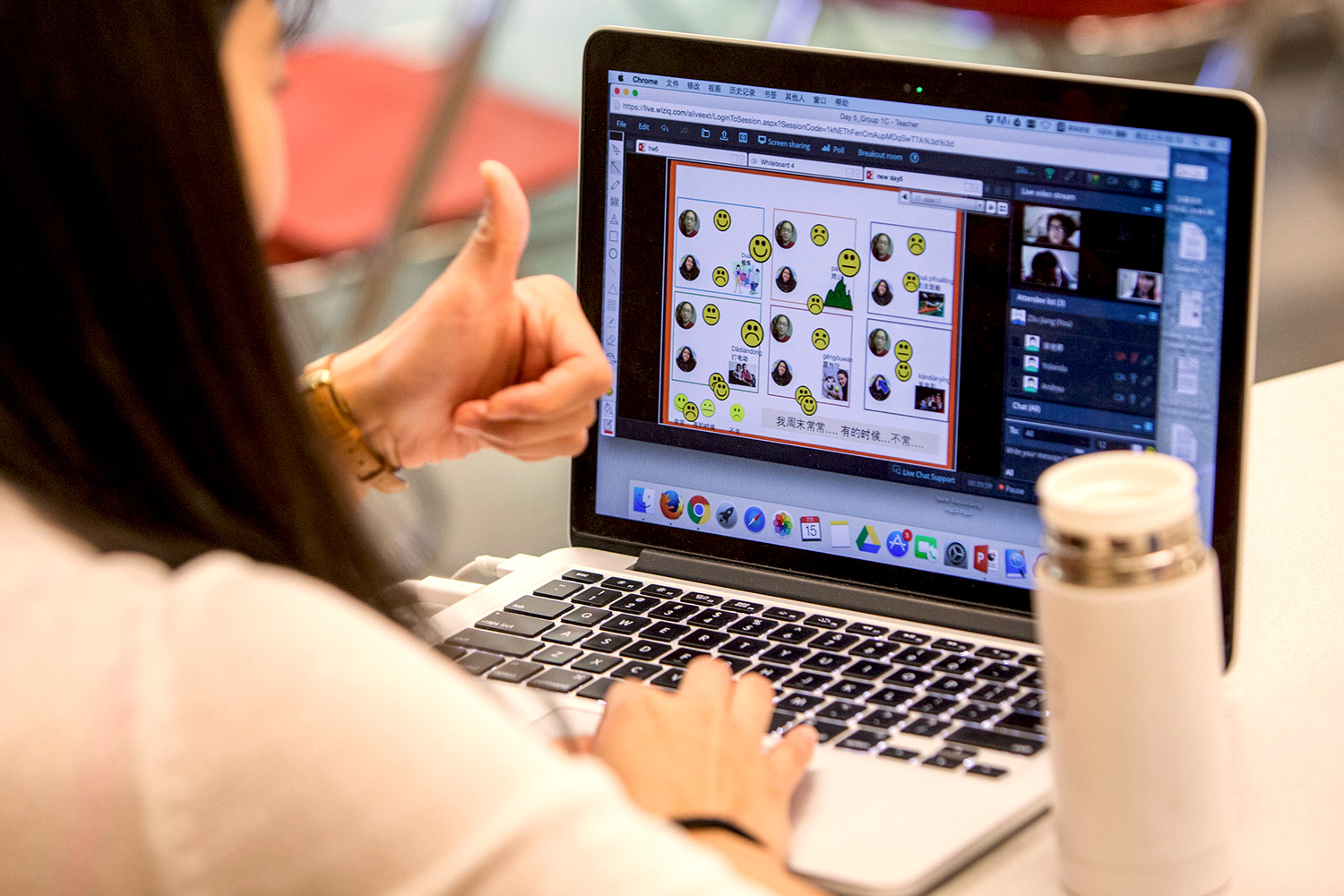Mid-July at the University of Virginia can appear deceptively quiet. Thick, soupy heat and the occasional thunderstorm collude to keep people indoors, leaving the brick-paved walkways on Grounds nearly empty.
But venture to room 211 on the second floor of Gibson Hall and you will find a virtual reality; secondary students from around the country learning Mandarin. The catch? None of them are actually in the room – physically anyway. The students, from around the country, link to a special online platform to learn Mandarin Chinese, one of the languages deemed critical by the U.S. government.
Their teachers, however, are in the room, and are learning to teach through an online curriculum custom-designed at UVA as part of “STARTALK,” a government-funded program that expands and improves the teaching and learning of such under-taught languages as Mandarin and Arabic.
The STARTALK program has been a big draw at UVA since 2008, attracting teachers who want to enhance their instructional skills and students from Virginia and beyond interested in learning one of these languages – in this case, Chinese.

Teachers work in pairs with six assigned students. (Photos by Sanjay Suchak)
But this year is different. The addition of the online platform has made the program much more accessible, and the students love it.
“I really enjoy the ability to learn one-on-one with a teacher,” said Wilson Turner, who is tuning in to the classes from Baltimore.
Turner is able to collaborate with his classmates, too. “I also like being able to view the way my classmates finished their homework assignments, because it gives me an idea of what to do for mine if I’m confused,” the rising 10th-grader said. It’s one way students are allowed to cross check their work.
UVA’s STARTALK program is highly sought-after by students and teachers alike. This year alone, 140 people nationwide applied. Twelve teachers – four of whom are college-level instructors – and 36 students were selected.
Miao-fen Tseng is an associate professor of Chinese and the inaugural director of UVA’s Institute of World Languages. She develops and oversees the STARTALK program, and said the online component distinguishes UVA from others around the country. Her team tested three different online platforms and selected one called WIZIQ because it is student-centered.
“We are very satisfied with the interactive functions,” she said. “A lot of online courses put materials online and students learn on their own. But where is the quality? How do we closely monitor to make sure that learning takes place?”
WIZIQ, she said, makes that possible because teachers and students interact one-on-one in real time. “We are making the history to explore and pilot a program on how languages can be taught right and well online,” Tseng said. “We have put interaction as a central notion for everything we created.”
On a recent day, students embarked on a virtual trip to Beijing, landing in an airport, connecting with host families and visiting a local school. “They talk about their daily classes and how to use their break time to do physical exercise,” Tseng said.
For the teachers, the five-week program began June 20 with two weeks of online learning in their home states, followed by a three-week residential experience at UVA.
Lili Kessinger teaches Chinese at a high school in Connecticut and is excited to take what she is learning at UVA back to her students at Staples High School. “I just love the idea of how I can use this technology to deliver lessons to students,” she said. “I’ve been in many other STARTALK programs. They all have their own specialty, but I think the tools that I am learning in this program are going to benefit me a lot.”
While the program is free for teachers and students, Kessinger is paying to earn five graduate-level UVA credits. “Teachers have the option to participate for free or to pay for credits,” she said. “I want to have the opportunity to transfer my credit to my second graduate degree.”
That degree is going to be in second-language acquisition. “I’m just thrilled to be here. Coming in here, I know I am going to be learning a lot. It’s just a really innovative and forward-thinking program,” she said.
Media Contact
Article Information
July 26, 2016
/content/new-online-chinese-language-program-uva-reaches-beyond-state-borders

